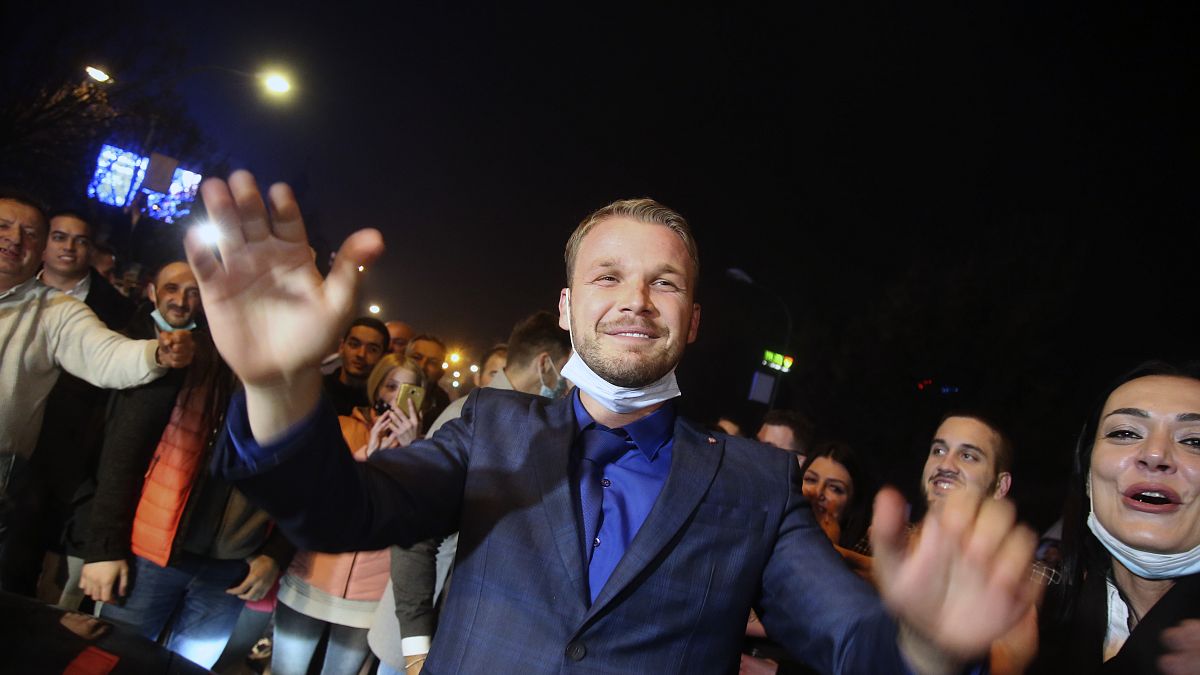Opposition candidates have won council seats and mayoral posts in two of Bosnia's largest cities in nationwide municipal elections, a major blow to the country's long-entrenched Bosnian and Serb nationalist parties.
Opposition candidates have won council seats and mayoral posts in two of Bosnia's largest cities in nationwide municipal elections.
The results are seen as a blow to the long-entrenched Bosnian and Serb nationalist parties, who lost power in the capital, Sarajevo, and the biggest Serb-run town, Banja Luka.
Citizens have expressed dissatisfaction at the government's handling of the COVID-19 pandemic, amid a major surge in coronavirus infections and deaths.
However, outside the big cities, nationalists still dominated the local political landscape after Sunday's elections, according to preliminary results.
Analysts have suggested the loss of key cities could pave the way for new overall leadership in the small Balkan nation.
The country has been uneasily split between its three main ethnic groups - Serbs, Croats, and Bosnian Muslims (Bosniaks) - since the end of the devastating 1992-95 war that killed 100,000 people.
In the capital, Sarajevo, the SDA group representing Bosniaks, was defeated in three out of four districts by a "Quartet" coalition made up of parties from both the left and the right.
"This is the beginning of a new Bosnia and Herzegovina, the one in which I want to live (...) and in which most people in this country want to live," said Srdjan Mandic, winner in the city centre and candidate of the multi-ethnic Nasa Stranka (Our Party).
Meanwhile, in Banja Luka, capital of Republika Srpska in northern Bosnia, the SNSD, the party of the Bosnian Serb leader, Milorad Dodik, was defeated by a young opposition candidate (PDP), Drasko Stanivukovic.
"After 22 years, this is the victory of man and mankind in Banja Luka," said Stanivukovic.
"It is a message that goes beyond Banja Luka, a message for our fellow citizens forced to leave this town and this country by bad policies".
Turnout for the vote was 50%, four percentage points down from the 2018 general election, which was expected to benefit Bosnia's dominant nationalist parties.
However, analysts say that many of their faithful voters appear to have sat out the vote for the first time in 25 years.
The number of coronavirus cases in Bosnia has been rising sharply in recent weeks, with nearly a third of all infections registered just this month.
The pandemic has amplified issues in the country, including an extreme shortage of medical professionals and widespread public corruption.
A number of prominent government officials are under investigation on suspicion of malfeasance in the procurement of desperately needed medical equipment.
Ahead of Sunday's vote, opposition parties in Bosnia grouped together to campaign and avoid stoking ethnic tensions, even fielding joint candidates in cities like Sarajevo.
